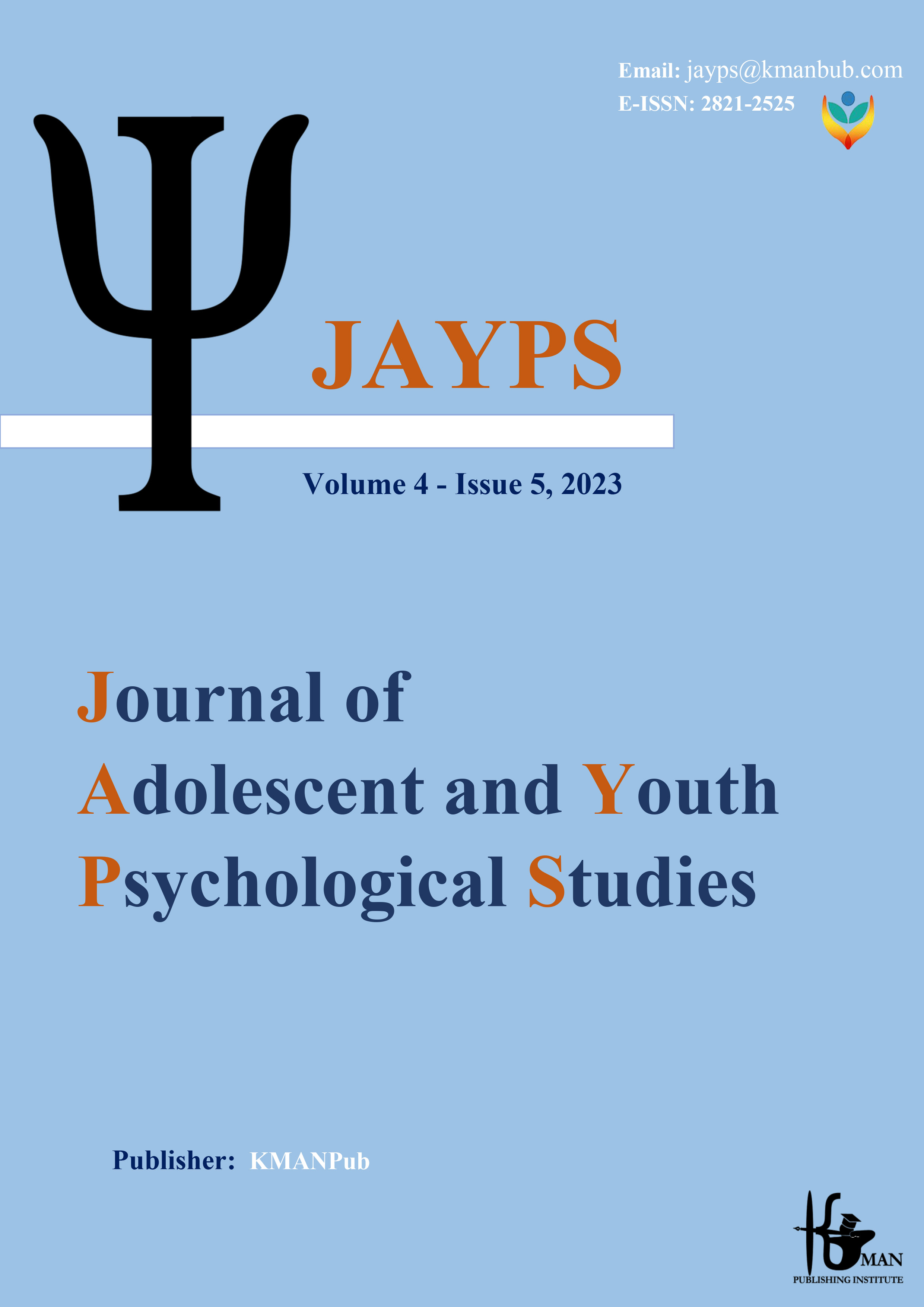Structural model of suicidal thoughts based on parenting styles with the mediating role of self-esteem and social support
Keywords:
suicidal thoughts, parenting styles, social support, self-esteem.Abstract
Background and Aim: Suicide, which means harming oneself with the purpose of killing oneself, is a major health problem and one of the main causes of death worldwide. The purpose of this research was to present a causal model of suicidal thoughts based on parenting styles (permissive, authoritarian, authoritative) and the mediating role of social support and self-esteem. Methods: The design of the current research was descriptive and correlational and based on the structural equation modeling method. The statistical population of the research was all high school students of Ilam city, 390 people (182 girls and 208 boys) were selected by multi-stage random sampling method. Data related to research variables were collected using Beck's (1961), Phillips' (1986) social support, Rosenberg's (1965) and Baumrind's parenting styles (1973) questionnaires. Pearson correlation and structural equation method were used through SPSS-27 and AMOS-26 software. Results: The results and findings of the research showed that authoritarian parenting style has a direct positive effect on suicidal thoughts and a direct negative effect on self-esteem and social support. Also, authoritarian parenting style has a direct negative effect on suicidal thoughts and a direct positive effect on self-esteem and social support. On the other hand, permissive parenting style has a direct negative effect on self-esteem, but this style did not have a significant direct effect on social support and suicidal thoughts. Also, permissive parenting style did not have an indirect and significant effect on suicidal thoughts with the mediating role of social support. Other results showed that permissive, authoritarian, and authoritarian parenting styles have an indirect and significant effect on suicidal behavior with the mediating role of self-esteem, and finally, the fit indices of the final model supported the good fit with the collected data. Conclusion: Increasing public awareness and empowering families and schools, especially psychological therapeutic interventions for parenting skills and increasing the level of knowledge and efficiency of the school counseling system can be effective in reducing social harm, especially the painful phenomenon of suicide and the formation of suicidal thoughts and ideas before that.
Downloads
Downloads
Published
Submitted
Revised
Accepted
Issue
Section
License

This work is licensed under a Creative Commons Attribution-NonCommercial 4.0 International License.









